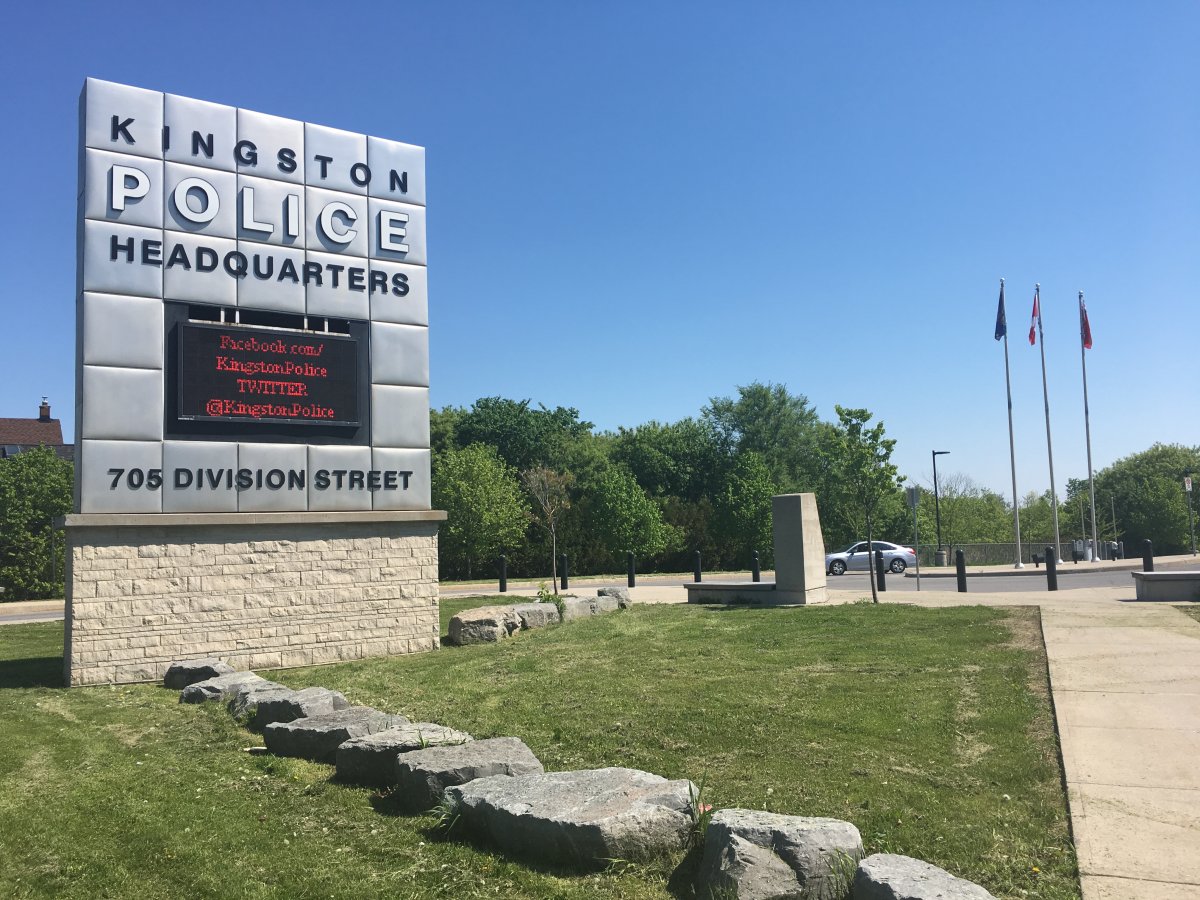According to Kingston police, a few complaints have been made about businesses still operating following the direction from the government of Ontario that all non-essential businesses close as of March 25 to contain the spread of COVID-19.

According to Kingston police Sgt. Steve Koopman the complaints, so far, have been unfounded.
Investigating such complaints from the public is one of the new responsibilities for police services across the province, under the Emergency Management and Civil Protection Act.
“We have officers here that have 30 years on the job that admit they’ve never had situations like we’re facing here with the COVID-19 pandemic. So we admit that we are learning just like every other service in regards to what our authority is”, Koopman said.
For the purposes of the current state of emergency, relating to COVID-19, the government of Ontario has deemed the following services essential:
- Grocery stores, supermarkets, convenience stores and similar markets will remain open. Any store that sells human or pet food is deemed essential.
- Beer, wine and liquor stores and alcohol producers, as well as cannabis stores and cannabis producers, will be open.
- Gas stations, pharmacies, restaurant takeout facilities and food delivery services will also be open.
For a full list, click here.
Koopman says business owners need to be aware of the guidelines set out by the Ford government for what businesses have been deemed essential. “If you don’t meet that criteria, then you — as a business — should not be open.”

Get daily National news
Kingston police also has the authority under the act to ensure that there are no organized public events of over 50 people.
According to Kingston police, officers will be dispatched to determine if a gathering meets the definition of being an “organized public event.”
If it is not organized, or is on private property, while there may not be an offence, anyone in attendance will then be educated about public health recommendations on physical distancing and the directive not to gather in large groups. City of Kingston bylaw infractions will also be considered in relation to noise complaints, or if it meets the definition of a nuisance party, a city bylaw originally enacted to counteract large street parties in the University District.
So far, the investigations are being done as the result of complaints made by the public. Koopman says officers from the community oriented response and engagement unit will then work, sometimes in conjunction with KFL&A Public Health, to determine if the business is an essential service, and whether or not Kingston police should step in by providing a warning.
“If we feel it’s either egregious enough, or they continue to operate, then we have again the ability to charge them, and the set fine is $880.”
According to Koopman the fines could add up for businesses who defy the emergency orders.
“We can continue to lay that charge every single day, if they continue to operate. There’s even higher fines in relation to how much revenue they’re generating while they’re open, when the government feels they shouldn’t be.”
The non-essential businesses ordered to shutdown this week join the list of facilities already forced to close by the province on March 17, 2020:
- All facilities providing indoor recreational programs,
- All public libraries,
- All private schools as defined in the Education Act,
- All licensed child care centres,
- All bars and restaurants, except to the extent that such facilities provide takeout food and delivery,
- All theatres including those offering live performance of music, dance, and other art forms, as well as cinemas that show movies, and
- All concert venues
Kingston police will also be responsible for assisting public health authorities to enforce the Quarantine Act.
The Quarantine Act is now in effect in the fight against COVID-19, imposing mandatory self-isolation rules for any traveller returning to Canada with fines and even jail time for those who break the rules.
The legislation, which went into effect Wednesday, means people coming back to Canada are now legally required to go into self-isolation for 14 days. Koopman says under the Quarantine Act, Kingston police can be used as a tool by public health officials, should a complaint be lodged about someone in Kingston not following the order.
“We can be contacted, as Kingston police, to assist public health in regards to the arrest or apprehension of that person if they’re refusing to obey from that order.”
At this point, Kingston police currently does not have the authority to enforce the recommendation from public health officials that people practice social and physical distancing — keeping a distance of a minimum of six feet or two metres from other people.
The police department also can’t enforce self-isolation, which doesn’t fall under the Quarantine Act.









Comments